Your cart is currently empty!

Experiencing unpleasant ringing in your ears? You may be suffering from tinnitus.
If you’ve ever experienced unwelcome noises in your ears that persist – ringing, whooshing, hissing, rumbling, roaring, clicking, buzzing – for short term or long periods of time, you may be one of the 10-20% of Americans experiencing the phenomenon known as tinnitus. Long referred to simply as “ringing in the ears”, tinnitus the hearing of sounds and noises when no external sounds or noises are actually present. While a high-pitched ringing sound is one of the more common, they can vary from soft to loud, low to high pitch, and can alternate from ear to ear or appear in both ears at once.
Tinnitus itself is not a disease or condition, but a symptom that results from numerous possible underlying diseases or conditions that affect the inner ear either directly or indirectly. Sounds may be intermittent, continued, or pulsing and in the worst cases affect quality of life and interfere with normal activities & proper sleep. Noise-induced hearing loss is one of the most common causes of tinnitus, as well as ear infections, heart and blood vessel diseases, head injury, brain tumors, Meniere’s disease, ear wax and emotional stress.
Western medicine has struggled to find ways to treat and manage tinnitus in the many Westerners suffering from it. If there is an underlying cause, treatment of the cause can improve and hopefully eliminate the noise. There are currently no effective medications, and in fact, pharmaceutical and prescription medications can actually induce the onset of tinnitus. Chronic tinnitus may lead to anxiety and depression.
The Traditional Chinese Medicine (TCM) Answer to Tinnitus
The most effective path to avoiding tinnitus is prevention. Wear ear plugs and take precautionary safety measures for your ears during prolonged exposure to loud sounds such as at concerts & festivals, around power tools and machinery, during firearms training and while playing live music.
Beyond that, we can find treatment options and ongoing wisdom regarding tinnitus from the Traditional Chinese Medicine (TCM) approach to health & wellness. The ancient practice of Chinese medicine is a holistic system that incorporates herbal medicine, acupuncture, massage (tui na), exercise (qi gong) and dietary therapy. These practices combine to re-balance a person’s internal constitution and promote the optimal flow of vital energy (qi) through channels in the body known as meridians, which are in turn branched and connected to various bodily organs and functions.
The dualistic concept of Yin and Yang is central to Chinese medicine theory, and it is applied across the understanding of the human body. Yin and Yang characterization extends to the body functions, and each one’s deficiency or over-abundance creates different disease symptoms.
The Chinese herbalists viewed the universe and nature as breaking down into five fundamental elemental qualities, known as the Five Phases – Wood, Fire, Earth, Metal, Water. This conceptual model serves as a way of understanding the interactions between the systems of the body, and how different symptoms and ailments present themselves; and are governed.
The central piece of understanding in how TCM interprets the interconnected functions of our body is through the zang-fu. These bear the names of 10 organs but more appropriately describe the general energy pathways that these organs are involved in. Traditional Chinese Medicine primarily defines them by their functionality – so the concepts are generally but not always associated with the same organs we know in the West.
The zang-fu are inherently entwined with the Five Phases and correspond in this way:
- Fire (火) = Heart and Small Intestine
- Earth (土) = Spleen and Stomach
- Metal (金) = Lung and Large Intestine
- Water (水) = Kidney and Bladder
- Wood (木) = Liver and Gallbladder
How Traditional Chinese Medicine Understands Tinnitus
When it comes to home remedies for tinnitus and alternative approaches to treating it, Traditional Chinese Medicine reigns supreme. In TCM, hearing and the ears are understood to be governed by the kidney-bladder network. There are four primary types of tinnitus known to Chinese medicine – two resulting from Excess and two resulting from Deficiency.
The first type of Excess (1A) is caused by a sudden onset of continual noise resulting from exposure to a loud sound, which can be accompanied by headache, flushed skin, constipation, irritability and insomnia. This agitation is described by Chinese medicine as being due to a hyperactive liver and an accumulation of gallbladder Fire. Extreme and persistent Fire from the liver weakens the optimal Water state of the kidney.
The second type of Excess (1B) often manifests as intermittent ringing or noise in the ears and can be accompanied by the feeling of blockage or hearing impairment. Other symptoms that may present themselves include stuffiness & congestion, dizziness, nausea and difficulty passing fluids. Chinese medicine describes this excess as due to an accumulation of hot phlegm (phlegm-Fire syndrome), phlegm being a term used in TCM to refer to general fluid retention in the body.
The Deficiency types of tinnitus result from a gradual onset of symptoms.The first type (2A) is gradually worsening tinnitus accompanied by symptoms of lack such as dizziness, worsened memory, weakness of the knees & joints and backache. The Chinese herbalists explain this lack as being due to insufficient kidney Yin (essence). This kind of deficiency results from the aging process, stress, the absence of proper nourishment & exercise, and can also be worsened by diseases of the inner ear or cardiovascular system.
The last type of Deficiency (2B) is defined by the Chinese doctors as a failure of clear qi to ascend, manifesting as intermittent tinnitus that gets better with rest and worse with stress. The cause is a Yang deficiency that affects the spleen system.
So now we know how the traditional Chinese medical practitioners view the complex problem of tinnitus, but what does that mean for the average person suffering from it? How can we understand this approach and how to effectively make use of it in our everyday health & wellness?
Comprehending the Chinese Medical Diagnosis of Tinnitus
While the heart, kidneys, and liver are intimately connected to tinnitus in the Chinese medical philosophy, experiencing tinnitus does mean that these organs are damaged. Sufferers of tinnitus may have all of these in perfect working condition. The work of Chinese medical practitioners is subtle and involves influencing blood and energy flow through the systems rather than directly targeting organs. Chinese medical theory maps energy channels to areas of the body and groups them together under the rubric of ‘Kidney’, or ‘Liver’ which describes not the organ but the entire circuit of energy.
The holistic approach to treating tinnitus first recommends acupuncture that targets the kidney meridians and to a lesser degree the meridians of the liver and gallbladder. By stimulating specific points along the body – unique to each patient – acupuncture can help to rebalance the flow of qi along natural channels and meridians, getting to the deep root of the problem and alleviating symptoms.
One of the first things that Chinese medical doctors look at when diagnosing a patient is the health and color of their tongue. In TCM, the qualities of the tongue represent a microcosm that reflects the greater state of balance or imbalance that a patient may be experiencing. The second thing taken note of is the speed and cadence of the patient’s pulse.
In the case of tinnitus resulting from Excess, there may be a bitter taste in the mouth and the tongue is red with even redder sides. The tongue’s coating is yellow with a pulse that is wiry and rapid. In the case of tinnitus from Deficiency, the tongue is pale due to Kidney-Yang deficiency or red due to Kidney-Yin deficiency, with no coating. In the former case the pulse is deep and weak while the latter exhibits a floating-empty pulse.
Chinese Herbal Treatments for Tinnitus
Each of the four sub-types of Excess and Deficiency call for their own traditional herbal treatment regimens according to Chinese practice. Treatment for Excess type 1A – hyperactive liver and gallbladder Fire – is Gentiana Combination (Long Dan Xie Gan Wan, or Snake and the Dragon) which can be modulated to treat tinnitus by adding Moutan, Ligustrum, and/or Eclipta.
-
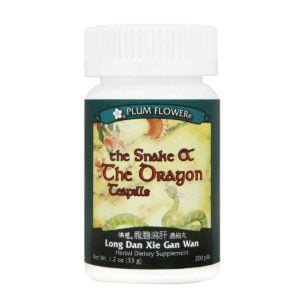 Plum Flower – Snake and The Dragon Teapills (Long Dan Xie Gan Wan)
$20.93
Plum Flower – Snake and The Dragon Teapills (Long Dan Xie Gan Wan)
$20.93 $27.50Add to CartAdd to cart -
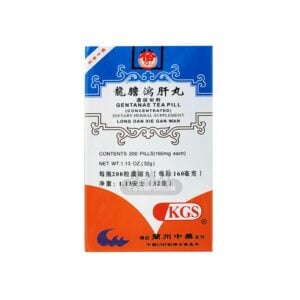 Long Dan Xie Gan Wan – Gentanae Teapill – Kingsway (KGS) Brand
Starting at $6.99
Add to CartSelect options
This product has multiple variants. The options may be chosen on the product page
Long Dan Xie Gan Wan – Gentanae Teapill – Kingsway (KGS) Brand
Starting at $6.99
Add to CartSelect options
This product has multiple variants. The options may be chosen on the product page
Excess type 1B – phlegm-Fire syndrome – may be remedied in several ways. One is with Pinellia and Gastrodia combination (Banxia Baizhu Tianma Tang). The other is with Bamboo and Hoelen (Wen Dan Wan) modulated to treat tinnitus by adding Pearl, Haliotis, and Uncaria. The combination can also be modified by adding Lapis, Scute, Rhubarb, and Aquilaria which becomes Meng shi Gun tan Wan.
The standard remedy for Kidney-Yin Deficiency type 2A is Rehmannia Six Formula (Liu Wei Di Huang Wan or Six Flavor Teapills) modulated to treat tinnitus by adding Magnetite and Schizandra. Deficiency type 2B – failure of clear qi to ascend – is remedied with a Ginseng, Astragalus, and Pueraria combination (Yiqi Chongming Tang).
Some of the best and most potent Chinese herbal remedies for tinnitus are found right here on the Best Chinese Medicines site. Let time-tested Chinese botanical mastery and our unparalleled sourcing process make your tinnitus treatment choices easy and just right for you. Explore herbal treatment options including:
Long Dan Xie Gan Wan, or Snake and the Dragon (Excess Type 1A) combined with:
-
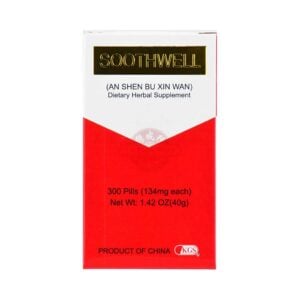 An Shen Bu Xin Wan (Soothwell)
Starting at $6.45
Add to CartSelect options
This product has multiple variants. The options may be chosen on the product page
An Shen Bu Xin Wan (Soothwell)
Starting at $6.45
Add to CartSelect options
This product has multiple variants. The options may be chosen on the product page
Wen Dan Wan, or Rising Courage Teapills (Excess Type 1B) combined with:
Liu Wei Di Huang Wan or Six Flavor Teapills (Deficiency Type 2A, 2B) used in conjunction with:
While there is no known Western cure for tinnitus, it’s important to remember that there are treatment options available from a larger vantage point of health & wellness. As we approach the first quarter century of this new millennium, it is time that we embrace a holistic, balanced approach to understanding the body and its wellbeing. The Eastern practice of Traditional Chinese Medicine encompasses a deep, alternative understanding of health & vitality that can offer relief to the many sufferers of tinnitus in the West.
Share This
Table of Contents
- Experiencing unpleasant ringing in your ears? You may be suffering from tinnitus.
- The Traditional Chinese Medicine (TCM) Answer to Tinnitus
About the Author
Blog Categories
- Adaptogen Articles (8)
- Brain Health Articles (9)
- Chinese Medicine Basics Articles (13)
- Chinese Medicine for Pain Articles (15)
- Chinese Medicine for Pets Articles (3)
- Chinese Medicine for Skin Conditions Articles (6)
- Chinese Medicine Formula Articles (6)
- Chinese Medicine Sleep Articles (4)
- Conditions & Concerns Articles (24)
- Digestive Issues (5)
- Eating for the Seasons (2)
- Health & Lifestyle Articles (17)
- Heart Health Articles (4)
- In the News (1)
- Medicinal Mushrooms Articles (7)
- Men's Health Articles (8)
- Scholarships (5)
- Uncategorized Articles (8)
- Weight Loss, Diet & Obesity Articles (5)
- Women's Health Articles (10)
Articles Related To Treating Tinnitus with Chinese Herbal Medicine
-
Ahhh, Spring! We all love to welcome its return after a long and dreary winter. The sun shines upon us, we have more energy, the temperature warms up, and new growth reminds us that there is always time for a fresh start. New beginnings and brighter days are ahead. And then…the seasonal woes ramp up.…
-
These days, trying to stay on top of a successful career, a clean home, a vibrant social life, and healthy habits can feel impossible. We burn the candle at both ends to try to have it all, which leaves many of us feeling burned out. But burnout is more than a buzzword – it’s a…
-
Of all the senses, vision is one of the most essential. Yet, few people know how to take care of their eyes naturally. Unfortunately, many of our daily habits sabotage our eye health and vision. Excessive screen time from phones and computers tires the eyes and impairs our vision. Plus, pollution, makeup, and environmental factors…
-
Ever feel like your heart is dancing to its own beat? You may be experiencing Atrial Fibrillation (commonly known as AFib), which is a condition that causes irregular heartbeats. Having frequent palpitations or an irregular heartbeat can be quite unsettling, plus it may bring potential health risks along with it. While modern medicine offers various…
-
Struggling to breathe? That’s a feeling no one wants to experience. Unfortunately, for over 262 million people across the world, conditions like asthma can quite literally “take your breath away.” But beyond inhalers and mediations, is there anything you can do to reduce asthma attacks – or even stop them from occurring altogether? Asthma is…


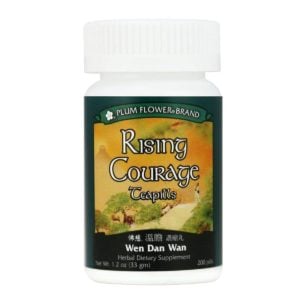 Plum Flower – Rising Courage Teapills (Wen Dan Wan)
Plum Flower – Rising Courage Teapills (Wen Dan Wan)
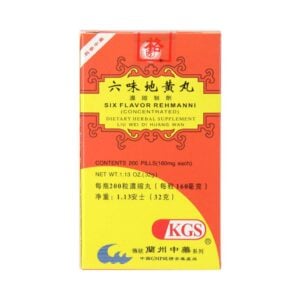 Liu Wei Di Huang Wan – Six Flavor Rehmanni – Kingsway (KGS) Brand
Liu Wei Di Huang Wan – Six Flavor Rehmanni – Kingsway (KGS) Brand
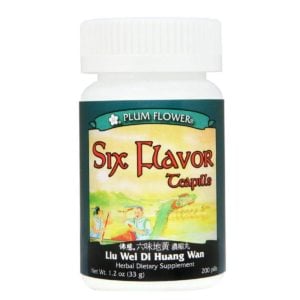 Plum Flower – Six Flavor Rehmannia (Liu Wei Di Huang Wan)
Plum Flower – Six Flavor Rehmannia (Liu Wei Di Huang Wan)
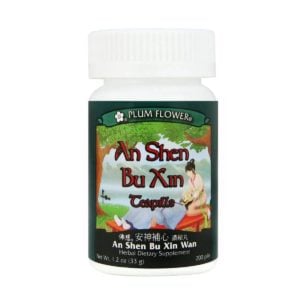 Plum Flower – An Shen Bu Xin Teapills (An Shen Bu Xin Wan)
Plum Flower – An Shen Bu Xin Teapills (An Shen Bu Xin Wan)
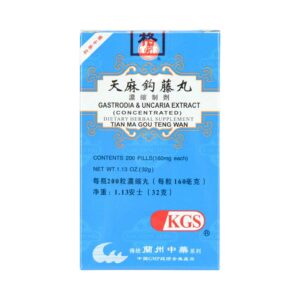 Tian Ma Gou Teng Wan – Gastrodia and Uncaria Extract – Kingsway (KGS) brand – (OUT OF STOCK)
Tian Ma Gou Teng Wan – Gastrodia and Uncaria Extract – Kingsway (KGS) brand – (OUT OF STOCK)
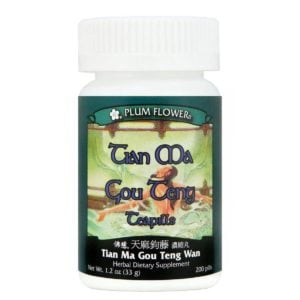 Plum Flower – Tian Ma Gou Teng Teapills
Plum Flower – Tian Ma Gou Teng Teapills
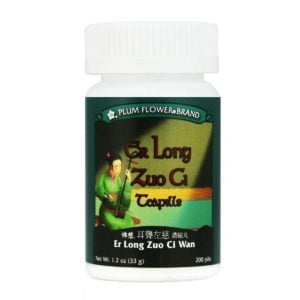 Plum Flower – Er Long Zuo Ci Wan
Plum Flower – Er Long Zuo Ci Wan
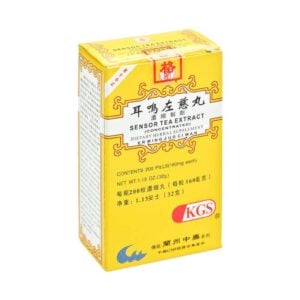 Er Ming Zuo Ci Wan – Sensor Tea Extract – Kingsway (KGS) Brand
Er Ming Zuo Ci Wan – Sensor Tea Extract – Kingsway (KGS) Brand